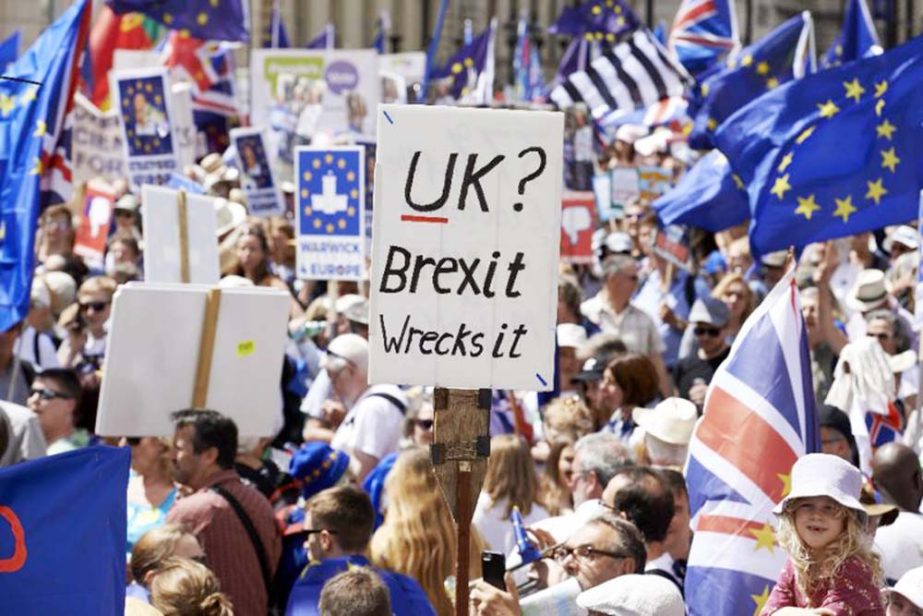
Only a few months ago, crowds of protesters marched through London to demand a second Brexit referendum. But just weeks before the departure date, the momentum has stalled.
Lacking the support of main opposition Labour leader Jeremy Corbyn, the campaign has flagged in recent weeks.
A cross-party group of second referendum backers last week declined to put forward a plan for a vote by MPs in the House of Commons, accepting that it would never pass without Corbyn’s support.
“We had a little bit of a bad moment, I’ll be honest,” said Paul Butters of the Best for Britain group, which campaigns to keep the country in the European Union.
He said that for them to succeed, “Corbyn has to move.”
One of the strongest opponents of Brexit, EU leader Donald Tusk, acknowledged the difficulties at a Brussels press conference on Wednesday.
Addressing those who want Britain to stay in the EU, he said: “I have always been with you, with all my heart.
“But the facts are unmistakable. At the moment, the pro-Brexit stance of the UK prime minister, and the leader of the opposition, rules out this question.”
However, campaigners insist that theirs has only been a temporary setback and are still biding their time, even as the clock ticks down to Brexit day, March 29.
They argue that the closer Britain gets to leaving the EU without a deal, the more likely they will be to get the Commons majority needed to arrange a referendum.
“There’s not a majority in parliament at the moment for a People’s Vote but I don’t expect there would be until all options have been exhausted,” said Adrian McMenamin, deputy communications director of the People’s Vote campaign.
Talk of a second referendum began almost as soon as the first one delivered its shock result in June 2016, but the formal campaign only launched last year. Backed by some generous donors, including US billionaire George Soros, a number of anti-Brexit groups moved into shared offices near parliament.
They have successfully turned a once marginal idea into something widely debated, which Prime Minister Theresa May frequently addresses – if only to argue that it has little support.
As well as the smaller pro-EU opposition parties in the Commons, more than 100 of the 256 opposition Labour MPs are now on board.
“Support in the parliamentary Labour party is very strong,” one MP told AFP on condition of anonymity, saying the number who supported the campaign in private was much higher.
However, he admitted there had been some internal discussion about “tactics”, adding: “It’s gone quiet because now is not the right time.”
Labour party policy says it should support all options on Brexit, including campaigning for a public vote.
But veteran socialist Corbyn, a lifelong eurosceptic, is personally reluctant to call a new referendum, and an estimated 30-35 Labour MPs are also strongly opposed.

